Crime has long been the scourge of the forecourt sector with criminals driving off without paying for fuel, and robbers preying on sites open late at night, but the recent terrorist attacks in Manchester and London have highlighted a threat the sector faces in common with all other businesses.
Brian Madderson, chairman of the PRA, says: "We have not been approached by the police about any specific threat to petrol filling stations, but staff should be vigilant and contact the police if they spot any suspicious activity on forecourts."
After the Manchester bombing, the PRA issued advice to forecourt owners:
Ask staff to remain vigilant. If you suspect immediate danger, call 999. Encourage staff to escalate suspicious activity on or near to your site immediately.
Make sure they have contact information to enable them to reach the appropriate people, day or night.
Make sure that staff know what action to take in the event of an incident.
Verify the identity of all contractors/suppliers visiting your site before allowing access to non-public/hazardous areas.
Additional advice for businesses is available from the National Counter Terrorism Security Office (NaCTSO) website.
When it comes to crime on forecourts, Kevin Eastwood, executive director of BOSS says: "The new BOSS Forecourt Crime Index has shown that during the past 12 months there has been a significant increase in incidents of No Means of Payment (NMoP) and an increasing trend of offenders carrying out multiple offences." The Index reached its highest level in the first quarter of 2017, and average annual loss from NMOP crime was £937 per forecourt before any recovery through Payment Watch.
Eastwood says: "We’re also working hard to tackle drive-offs. It’s still the largest issue and costs retailers about £20m each year. We know drive-offs are difficult to deal with as retailers may not have the information for police to follow up or some police won’t take any action.
"Our trial of a new BOSS service has shown that we can recover up to 70% of drive-off losses if we have adequate information to pursue suspects. But more interesting is that we’re finding that drive-offs fall into two categories. One-third result in drivers filling up, making no attempt to pay and then driving off this is theft. But two-thirds of incidents are failure to pay in-store. There may be many reasons for this, a mistake or deliberate, but we’re finding some police endeavour to treat in-store drive-offs as a civil offence.
"What’s exciting about our drive-off initiative is that it’s the industry taking control of reporting and recovering losses. During the trial less than 10% of incidents have had to be reported to the police, which saves them a huge amount of time. We’re planning to roll out the initiative to more forces."
Where offenders carry out two offences they tend to evade payment and carry out more, because they think they can get away with it, but BOSS crime analysts are working to identify multiple offenders. Their work has led to more than 4,500 instances of multiple offending being referred to Action Fraud, the National Fraud Investigation Bureau, which then sends cases to the police for them to prosecute. Additionally, the evidence that is collected by BOSS has been used by the authorities to help them tackle other crimes.
Eastwood adds: "The BOSS Electronic Reporting System (ERS) is now a critical tool and it’s available across the UK for NMoP incident reporting. ERS makes it quick and easy to submit incident reports online and the accuracy and reliability of electronic information is often better than hand-written reports. We hope to eventually have it for drive-offs available on a force-by-force basis because this requires a special service level agreement to be made with each force."
On camera
High resolution CCTV coverage of a site can help deter crime and provide evidence to convict the criminal when it does occur. Rod Broad, owner of Jet’s Tickhill Garage, located between Rotherham and Doncaster, has introduced additional CCTV equipment to strengthen his site’s existing 16-channel system. He explains: "My CCTV was working well, but the site is huge and the cameras simply didn’t cover all of it. Last year, we had a new high-quality Samsung HD four-camera CCTV system supplied and installed by AGE CCTV."
The new system consists of two internal HD dome cameras and two external HD infra-red bullet/dome cameras, along with a four-channel network video recorder (NVR) and an HD monitor.
Rod says: "The clarity of the HD cameras is amazing and I can access everything from my mobile or tablet. The system isn’t linked to the local police, but it does give me the option to email CCTV images to them immediately should I need to.
"We have spates of drive-offs from time to time, but more frequently have to deal with non-payments and, without full CCTV coverage, you have nothing to safeguard yourself with.
"Also, we often use the CCTV footage to address any discrepancies in shop deliveries or at the tills."
Forecourt Eye works well for Valli Forecourts
Leeds-based Top 50 Indie Valli Forecourts was the earliest adopter of Forecourt Eye, a digital payment recovery and crime prevention platform. According to Waqas Aslam, area manager at the company’s BP Gledhow Services, the previous paper-based process for dealing with drive-offs and no means of payment customers was time consuming and it was hard to evaluate its effectiveness.
"In the early days, when we were testing the new digital platform, it was a challenge for all of us adapting to a completely paperless process but it took us no time at all to realise this was the future," he explains.
A key feature of the Forecourt Eye system is speed, with incident information collected in under two minutes. He adds: "It is very straightforward and really convenient. Anyone can do it, in just a few simple steps via a tablet device. Once the information is collected and submitted, we don’t do anything, we leave the rest to Forecourt Eye; it’s no hassle, no wasted time for us, they do it all. All our sites are now using the system, and our customers can clearly see signs telling them we are operating it which is also acting as a deterrent."
Across the company’s 14 sites, payment recovery results are consistently more than 90% and there have been successful prosecutions for drive-offs, Aslam confirms.
He says: "At one point some years ago we hit £1,000 in a week across all sites for all drive-off and non-payment incidents. We used to call the paper forms we issued IOUs. Now, the digital information and data we collect highlights problem areas and regular offenders so we can take action."
In a new development to the Forecourt Eye system, ANPR cameras can be added as a further preventative measure, alerting attendants that a vehicle is ’of interest’ so they can instantly stop fuel being dispensed if necessary.
"This is a potentially transformational development and we are very interested in trying this out," Aslam adds.
deterrent
Fog Bandit is an active deterrent used to repel robbers and burglars. It generates an almost instant blanket of dense fog when triggered, leaving raiders disoriented and unable to see what they intended to steal, forcing them to flee empty handed.
It has two main uses. Out of business hours, the system can be linked to the alarm system so that if burglars break into premises, it is triggered and blankets the interior in dense fog within seconds. And during working hours it can be activated by a panic button or a pendant worn by staff if raiders strike.
It is usually positioned near high-value items such as tobacco.























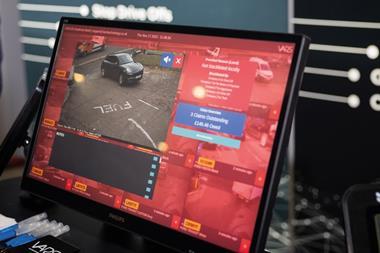
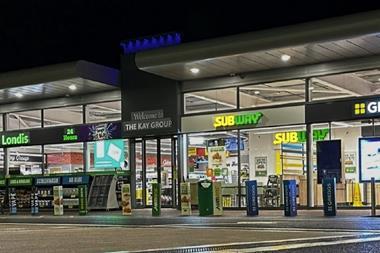

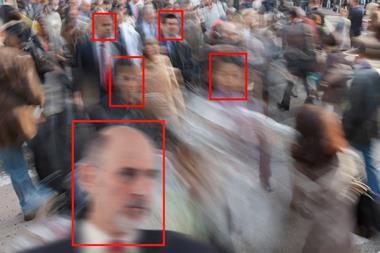
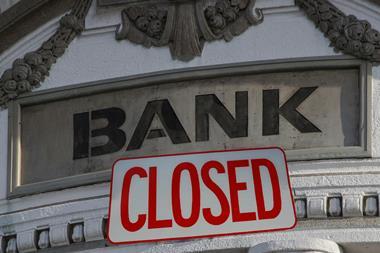



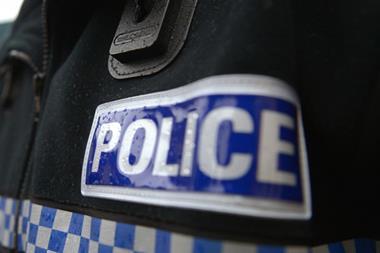
No comments yet